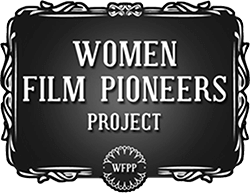CFP: Domitor Conference, “Crafts, Trades, and Techniques of Early Cinema”
Call for papers: The 2020 Domitor Conference – “Crafts, Trades, and Techniques of Early Cinema”
Deadline for proposals: September 22, 2019
Deadline for Student Essay Award: September 15, 2019 (see bottom of this post for more info)
The conference will take place at Cinémathèque française and the Fondation Jérôme Seydoux-Pathé in Paris, France, on June 12-15, 2020
From Domitor’s website:
On the 125th anniversary of the first projection of Workers Leaving the Lumière Factory in Lyon (1895), this 16th international conference turns its attention to all that occurs behind the factory doors: that is, the crafts, trades, and techniques that, while not always represented on screen, shape our experience of it.
Long part of Domitor’s mission, this reevaluation of the skills and practices that defined the cinema in its early decades aims to gain a better understanding of the medium in its varied industrial and professional aspects. The art, techniques, and gestures of craftspersons – such as performers, camera operators, editors, directors, designers, engineers, projectionists, programmers, and critics – like those of the factory or laboratory worker, had to be developed in their new specificity and in relation to existing cultural and technological forms.
We are interested in discovering how the industrialization of cinema, professionalization of workers, and standardization of techniques, alongside developing technologies, led to the creation (or at times, the diversion or subversion) of norms, legitimizing certain skills, crafts and techniques at the expense of others. Such fluctuating practices and professions, and their accompanying discourses and representations, merit further historical inquiry across hierarchies, divisions of labor, and lines of class, gender, race, ethnicity, region, and nation.
For the full CFP, click here.
We are pleased to share the call for submissions for the Domitor 2019 Student Essay Award. If you are currently enrolled in an undergraduate or graduate program, or have received a degree after January 2019, please consider submitting your paper. And if you teach scholars, archivists, or artists, please spread the word to your students. The deadline is September 15, 2019, and the award consists of a $500 prize and assistance with its publication in a professional film historical journal. Please find details attached and on our website: https://domitor.org/awards/.


